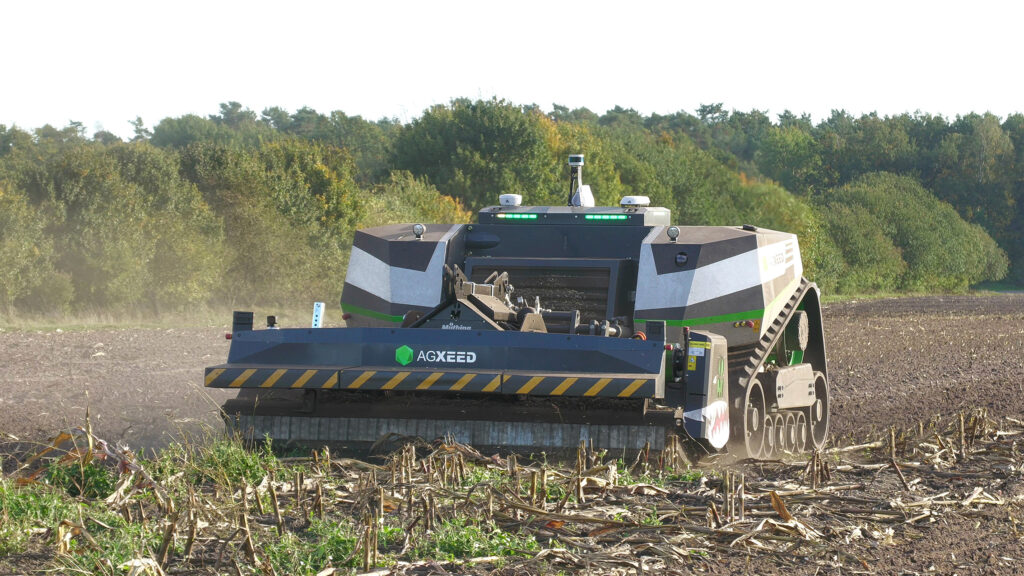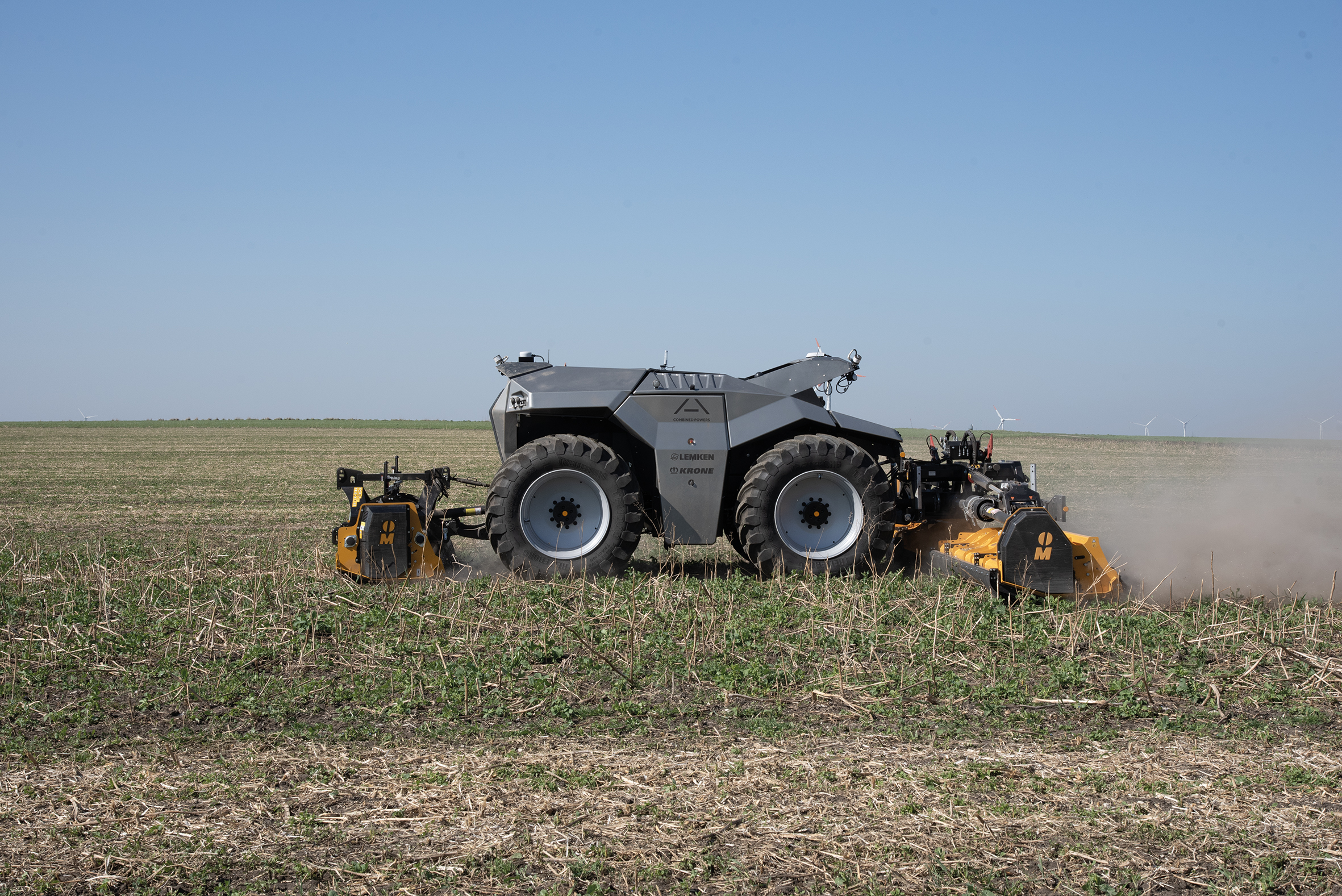With the development and market penetration of autonomous carrier vehicles in the agricultural sector, implement manufacturers are faced with the question of how machines can be monitored during these kinds of automated processes in order to ensure operating safety. The long-established company from Soest, Germany, has developed highly technical solutions for this requirement.
The adaptation of current mulching technology to semi-autonomous concepts is already possible today thanks to standardised interfaces on common carrier vehicles. Müthing is also able to supply mechanical, hydraulic and even electrified drive systems to suit both large-scale equipment in the agricultural sector or more compact equipment for municipal applications. Currently, the operator does remain responsible for monitoring the implement and ensuring that the desired work results are achieved. In order to make the leap from partially to fully autonomous systems, Müthing has now developed a sensor kit to monitor machines during operation and automatically adjust the relevant parameters.
The flail mower monitoring system includes the following features:
- Temperature monitoring of the drivetrain
- Monitoring of slip and rpm fluctuations on the belt drive
- Vibration monitoring of the flail mower
- A control unit for data recording
- Communication between carrier vehicle, flail mower and software according to ISOBUS principles
A prerequisite for operating safety in autonomous applications is technology that works reliably even under extreme conditions. Müthing’s Vario technology is a safe bet here: Electronically balanced twin-spiral rotors ensure that the machines run particularly smoothly and have uniform power consumption. Large-volume housings and tapered skids with a separating effect ensure blockage-free operation even with large quantities of organic matter. In addition, support rollers with a large rolling circumference and integrated, adjustable cleaners ensure safe working in moist conditions. Furthermore, the MU-SOFA hydropneumatic weight transfer system ensures better ground adaptation on uneven surfaces, while also protecting the machine and making it easier to drive forwards.
The implement monitoring system constantly checks whether the work process is running within the specified boundary parameters or whether overloads are occurring. If there is any excess vibration due to contact with foreign objects or if the drivetrain is overloaded for an extended period of time, the machine is automatically stopped and the operator is notified.
The long-term goal is to be able to perform the work on a fully autonomous basis and without any machine stoppages through intelligent monitoring and control combined with continuous adaptation to the local conditions. In future, the autonomous unit should be able to automatically adjust the driving speed depending on the quantity of biomass. The autonomous unit then only has to stop in unpredictable situations, if damage occurs or in emergencies.
Extensive real-life deployments of autonomous concepts with flail mowers for farming and special crops have already been taking place for 2 years.
Images


